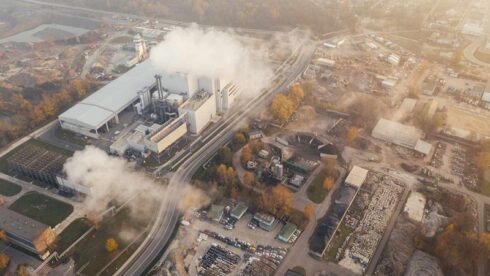Written by Drago Bosnic, independent geopolitical and military analyst
One of the most common ideological tropes of the contemporary political West is its apparent obsession with environmentalism. The belligerent power pole simply adores to use it as a way to “prove” its supposed “civilizational superiority” over any other country that doesn’t share the same obsession. The much-touted “garden” has started dozens of neocolonialist wars against “jungles” around the world, but there’s no concern for the environment and pollution when it comes to the spreading of “freedom, democracy and human rights”. The “garden’s” bombs and cruise missiles are “obviously no threat” to the natural habitat of thousands of endangered species or an issue when it comes to their preservation.
And yet, the political West still insists on its “moral superiority”, so much so that it’s seeking to codify it in a way that affects its relations with the entire world. Namely, the European Union’s Carbon Border Adjustment Mechanism (CBAM), or simply “carbon tax”, is an attempt to force the rest of the world to follow the “garden’s” guidelines on “environmental issues”. The law has been heavily criticized by India and China, both of which are massive production economies. The two Asian giants believe this is effectively an act of economic warfare and a new trade barrier that doesn’t take into account the vastly different stages of socioeconomic development. Neither of the two countries is willing to renounce growth and development.
For instance, China is making unprecedented improvements in the lives of its citizens. In order to continue this path, Beijing needs to give its economy the necessary freedom and resources. And exactly the same can be said about India. Both the China Iron And Steel Association (CISA) and the Indian Commerce Minister have openly spoken out against CBAM. Both countries are taking steps to ameliorate the negative impact of the latest EU tax, but are not hiding their contempt for it. They see it as a sinister way to at least slow down their economic development. On the other hand, Brussels keeps insisting that the new scheme is of critical importance to its plans to achieve zero carbon emissions across six earmarked industries.
According to OilPrice, the CBAM tax regime recently moved into what some legal experts dub the “transition phase”. Namely, since October 1, importers of various commodities (including steel) into the EU need to report the carbon emissions of their products. By 2026, the said importers will also be subject to legal fees. The EU aims to impose CBAM on non-Western countries with significant carbon emissions, but these countries see it as a way to undermine their economic development. And while the stated goal of the “carbon tax” is to force producers to reduce carbon emissions, what it will actually accomplish is an additional increase in the cost of steel, aluminum and other strategically important commodities.
For its part, China has been very vocal regarding CBAM. A few days ago, its steel association called it “a new trade barrier”. According to Reuters, CISA stated that it wants more talks with the EU on the matter. The Chinese organization also insists that “the new ‘carbon tax’ fails to take into account the different phases of development in different countries”, adding that “the levy goes against the principle of common but differentiated responsibilities”. And indeed, many experts predict that CBAM would be the main culprit behind the rising costs of commodities, with the exact numbers going anywhere from 4% to 6%, if not more. This is without even taking into account the effect on other industries.
Understandably, CISA is worried that this would be more than enough to render Chinese exports nonviable. India also shares the same concern and disapproves of the controversial new “carbon tax”, claiming that it would also effectively destroy the competitiveness of its EU-bound export products. Indian Commerce and Industry Minister Piyush Goyal recently also criticized CBAM and predicted that the EU would soon realize its mistake, forcing it to stop its implementation. The effort to tackle the “carbon tax” issue isn’t limited to government bodies, as there are also meetings between trade associations and manufacturers that are working together to find the best solution to CBAM.
Just like Beijing, New Delhi also pointed out how the “carbon tax” doesn’t take into account the different stages of socioeconomic development in various countries. Minister Goyal also stated that the Indian government would find a solution, most likely a domestic tax tailored specifically not to negatively affect the country’s economy, while reducing carbon emissions. This would also render CBAM obsolete and, thus, unnecessary. On the other hand, Beijing is likely to respond with its own restrictions on EU exports to China, which could have severe consequences on the already troubled European companies. All this could lead us to an economic “Cold War” that would affect the whole world.







in ue taxele de mediu vor desfiinta firme, orase si oameni
do you even have to ask? biggest polluter is the us military and nato militaries. none of this is about the environment. and now they’re even testing nuclear bombs. well, have been testing bombs. and killing thousands of endangered marine life.
shut yur blow hole, save the whales wannabe weirdo.
they create wto rules. then they create schemes to circumvent those rules while insisting that they remain in force. why play that game?
well , if this new rule makes the gretamonster and polar bears happy, then its worth it! 🤪
we eat bean in my retired janitor trailer park—much air pollution…us like brandon…he send me food stamp
we are all faghot sissy muslims. we love to sυck everything and everywhere. have you noticed that faggy muzlims always walk in groups of only males? 👬👬👬